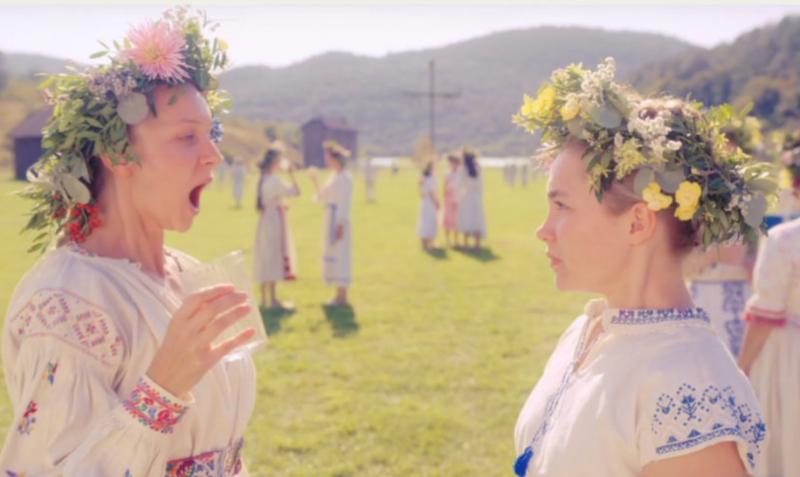Since director Ari Aster’s debut film, “Hereditary,” contained images that still haunt me two years later, I was a bit skittish entering into his followup, “Midsommar.”
“Hereditary” had a mosquito-like ability to sink under your skin, leaving you with no idea he was infecting you until he had already drawn blood. And by all accounts, “Midsommar” looked like it was going for the exact same vein.
Like “Hereditary,” “Midsommar” focuses on family, but the clan here is more of a communal nature and not necessarily the one you were born into.
We enter this world through a young couple who are holding onto the threads of a toxic relationship. Christian (played by Jack Raynor) is a laid-back grad student who seems to let life wash over him without making too much of a stir. This includes breaking up with girlfriend Dani (played by a truly remarkable Florence Pugh), who has co-dependency issues of her own, but is also facing major family trauma as well. Their relationship of three-plus years has devolved into one that brings out the worst traits in both, and it’s easily evidenced in an early passive-aggressive phone call between them.
We rejoin them half a year later, and not much has changed: Christian is still undecided on his doctoral thesis and only offers the faintest of platitudes to Dani; meanwhile, she remains in a deep depression over a personal loss and is merely tolerated by most of Christian’s friends.
At a party they attend, Christian announces that he and his gang are heading to a Swedish village that’s home to one of his roommates, Pelle (played by Villhelm Blomgren), to observe their unique customs and rituals.
Ancient and obscure customs are the focus of studies for Christian’s other roommate, Josh (played by William Jackson Harper), so the chance to spend a month within this remote Swedish commune is perfect for his dissertation. But the mention of this month-long sojourn comes as a surprise to Dani, who is understandably upset Christian neglected to tell her. In an attempt to not cause any further relationship ripples, he half-heartedly invites her along. And Dani, not wanting to be alone while still reeling over her personal tragedy, accepts.
Once at the village, the group is met by community members in makeshift tents scattered along its outskirts; they all welcome Pelle and his friends with open embraces ... and some potent psychedelics. Because of this, the increasing oddities around them ... a bear in a cage in the middle of the village, murals that contain rather disturbing images, and the plastered-on smiles of locals ... are shrugged off as “just how they do things in these parts.”
It is the same technique Aster used in “Hereditary.” Painting a seemingly natural scene, but coloring its edges with brief, unsettling glimpses of chaos. And for its first hour, “Midsommar” expertly draws viewers into its world. We are essentially at the core of a rotting relationship and watching it slowly discolor in the bright sun. It’s filled with uncomfortable silences, awkward conversations and squirm-inducing petty arguments that will ring true to anyone who has witnessed a couple in the middle of a dying affair.
It’s all held together by Pugh, who nakedly displays all Dani’s faults, but remains a sympathetic lead trying to keep it together despite her life crumbling around her.
Once the group enters “Midsommar’s” main village, Aster’s film begins to crumble as well. Despite a truly unforgettable ritualistic ceremony at the start of the community’s festivities, the acts that follow become a slightly repetitive list of “nope” moments that would send even the most determined anthropologist hailing the next cab out of town.
As in “Hostel,” directed by Ingmar Bergman, Aster beautifully captures the discomforting sense of a bad relationship through a series of extreme actions taken to absurd lengths (and I mean that chronologically as well, as the film clocks in at almost 2.5 hours).
It’s a shame, because for the better part of the film, Aster casts an enticing spell, and his talent behind the camera is one to be reckoned with. The same praise could be heaped on Pugh as well, whose character is emotionally scarred, mentally shaky, and occasionally riding a hallucinogenic (voluntarily and involuntarily), but remains captivatingly real throughout.
I still cautiously await Aster’s next film, as I have no doubt he will provide us with countless unsettling images portrayed with precision.













































